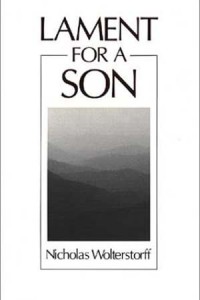“Made a searching and fearless moral inventory of ourselves.” – Step Four, Twelve Steps, http://www.aa.org/twelveandtwelve/en_pdfs/en_step4.pdf
The Dark Night
In The Dark Night Of The Soul, author Gerald May writes “Some A.A. members call themselves 'grateful alcoholics' because their addiction finally brought them to their knees. It was only because of the addiction that they discovered the true depths and longings of their souls." If addiction brings us to our knees and procures gratitude from our hearts, I would suggest that the fourth step is addiction’s counterpart in this glorious work. Whether one takes a moral inventory as officially delineated by a local twelve step program, or one merely takes seriously Jesus’ words to “forgive us our debts as we forgive our debtors,” doing business with the evil that one has both endured and perpetrated in life must be understood as crucial to any kind of growth: spiritual or relational.
Excavating A Ghost Town
Perhaps this is why the fourth step has been called “the heart of the program.” Doing a fourth step is the equivalent to unearthing years of negative emotions. It’s like excavating an abandoned ghost town where traumatic events lay motionless and still, left precisely as they were, in the moments after their trauma. Here the fourth-stepper, like a soul archeologist recently equipped with his tools of powerlessness (step 1 in the twelve step program), humility (step 2 in the program), as well as renewed responsibility and volition (step 3), now returns to the ghost town of his soul, hunting for buried treasure that no adventurer has ever willingly searched for. His work is dangerous and, by all normal human accounts, absurd. Nevertheless, this is the work of the fourth step: soul excavation. At risk if the work goes undone? A ghost town that remains dead. A soul that remains quiet and forever haunted.
The Three Steps of the Fourth Step
The impact of taking a moral inventory of my life could best be described as a three-fold process. In the first part of the process, I encounter grace in a new way. Let’s call this “Step 4.1.” Grace precedes and follows my intentional soul searching. In fact, it is grace that proves to be the essential catalyst for the next part of the process, “Step 4.2” which is the shining of a light on what author Richard Rohr calls my shadow self. Or, as author Brennan Manning puts it, grace enables me to name my “imposter (Manning, Abba’s Child).” Finally, in the third part of this fourth step transformational process, “Step 4.3,” I move into the heartbreak and humor that come from accepting the truth about who I am.
Step 4.1: An Encounter With Grace
The kind of honest, life-reflection required in doing a fourth step opens the door of my heart to experience more of God’s grace. Grace creates a foundation for open self-discovery. In the light of grace nothing within me needs to be overlooked, because grace is more powerful than whatever evil I may stumble across in my heart. Moreover, grace not only provides me the ability to see the bad in me, it also helps me see the good. In other words, without grace I condemn myself for the bad and take false pride in the good.
What if evil, addiction, and sin were more like a disease that invited God’s sadness and compassion, rather than a behavior met only by God’s anger? Author Richard Rohr writes this: “How helpful it is to see sin, like addiction, as a disease, a very destructive disease, instead of merely something that [is] culpable, punishable or ‘[makes] God unhappy.’” Rohr backs this up with a unique perspective on Jesus as portrayed in the gospels, pointing out that “it is really shocking how little Jesus is shocked by human failure and sin. In fact, it never appears that he is upset at sinners. He is only and consistently upset at people who do not think they are sinners (Rohr, Breathing Underwater).” I would suggest that it’s only this kind of perspective on sin that makes it possible for me to make a complete moral inventory of my life. Only the knowledge of a gracious and compassionate God could lead me to risk stumbling over evil in my heart; evil that I did not previously see. Doing a moral inventory invites me to revel in the grace of God. It pushes me to encounter grace in a new, fresh, way.
Grace & Christian Worship
One accompanying observation is found in the arena of Christian worship. In worship we encounter God’s grace on a weekly basis through the liturgical ritual of confession and assurance. This worship ritual is nothing less than an intentional, weekly, corporate, step four enactment! One manual for Christian worship describes confession and assurance as follows (notice the almost explicit connection to the heart of the fourth step):
“The prayer of confession invites us to speak words that are remarkably honest about our own sin, words that do not come naturally in our relationship with God or with our fellow human beings. Such honesty, perhaps more than we could ever generate in our own strength, becomes remarkably liberating when we sense the immensity of God’s grace. In this way we can think of the prayer of confession (and of the assurance of pardon that follows) not as an onerous obligation but as a gift of grace (The Worship Sourcebook).”
Around the time of doing my fourth step I was writing songs for the Count The Stars EP 2013. In light of what I was learning about myself and about grace, I wrote a song loosely based on Brennan Manning’s book Abba’s Child, called Isn’t That Amazing Grace. The words encapsulate this idea that doing a fourth step, as a Christian, brings one face to face with God’s grace in a deep way. The words are as follows:
“Underneath the countenance of God we all try to hide. We forget how he loves us so, we forget we’re Abba’s child. So when the lies are loud, let the gospel drown them out. Come out, sinner, from those shadows, every corner of your shame. Don’t you know you’re his beloved? You don’t have to hide your face. Isn’t that amazing grace? But there are other voices in our hearts. They’re imposters in disguise. And they tell us we can’t trust his love- that on our selves we must rely. But when the lies are loud, let the gospel drown them out. Don’t believe the lies. You’re beloved, Abba’s child. No more guilt and shame, ‘cause isn’t that amazing grace?”
Step 4.2 Light For The Shadow Self
The second thing that happens as a result of doing a moral inventory as seen in the fourth step, is the naming, identifying, exposing, and welcoming of what analytical psychology calls the shadow self. The shadow self is the part of us who turns to addiction, who lives by what we do and not what we are, and who thrives on pleasing others, demands their approval, and lives for their applause. The term “shadow self” is important because, in light of the paradigm of grace discussed above, doing a moral inventory means caring for, not destroying, the hungry, thirsty, needy, destructive part of ourselves. In one of my favorite books of all time, Care of the Soul, author Thomas Moore contends that until we pause to hear what our shadow self needs, we will never be able to heal it, and incorporate it into our identity as a whole person. In other words, doing a moral inventory is a way of discovering what our souls most long for, through the lens of our destructive behaviors. When we encounter grace, we are given the freedom to care for our shadow self.
Step 4.3 Laughing and Weeping
What do we do with this shadow self once we’ve discovered it? Authors Russ Hudson and Richard Rohr have given a series of lectures on the Enneagram, an ancient and profound personality assessment. Their lectures are called “Laughing and Weeping.” The title itself is significant in that it points to what we ought to do with our shadow self. That is, on the one hand we must grieve and weep for its evil, our sin. On the other hand, we must accept, embrace, and thus “laugh at” and thereby accept our humanity and weakness. The work of Hudson and Rohr on the Enneagram has been a powerful tool in helping me do this.
Here is an example: Personality type four on the Enneagram (the romantic, individualistic, artist) uses emotion- particularly negative emotion- to manipulate those close by. Type fours often live in fantasy world, discontent with present reality. Type fours are emotionally sensitive and can be ruled by passing emotional experiences. As a type four, I’ve learned to weep for my sensitivity and discontentment, and the way they push people away from me, isolate me, and lead me to reactive behavior. These characteristics of my shadow self must be grieved.
Nevertheless, weeping should not be my only response. Grace changes, not obliterates, the shadow self. So with the weeping comes the laughter of acceptance and welcome. Yes, my personality type has brought great pain. But it has also brought me the gift of intuition, creativity, independence, and a fully orbed emotional life. I should laugh with enjoyment and gratitude that my curse is also my gift! Maybe this is part of what St. Paul means when he tells the Corinthians that God’s power is perfected in his weakness (2 Cor. 12:9).
Final Thoughts: Redemption, Theosis, and Observance
Okay I admit it: My hope was that, after doing a fourth step, I would never have to make a searching moral inventory again, I would magically and dramatically change for the better, and my shadow self would be forever exposed and accepted. But this isn’t reality! Such an outcome neither reflects the reality of human sin nor the reality of Christian redemption! The goal of life after a fourth step is not the removal of evil. It is evil’s redemption.
Is this not the way God deals with evil in the scriptures? Apart from some notable exceptions, sinners are rescued rather struck by the lightening bolts of an angry God. Creation itself, contrary to some theologies, is not wiped out, it is recreated. It isn’t removed, it is redeemed. And so it is with us. Salvation is not the evaporation or obliteration of our imposters and shadow selves. It is the completion, integration, and wholeness of ourselves. Hans Rookmaaker famously said, “Jesus didn't come to make us Christian; Jesus came to make us fully human." Similarly, St. Irenaeus noted, “the glory of God is man fully alive." Eastern Christians helpfully talk about the goal of salvation as “theosis,” a word meaning “to become divine.” They don’t mean divine in the same way God is divine, but, as the scriptures say, Christ has saved us that we might be partakers of the divine (1 Peter). Salvation is not becoming a different person, it is becoming the truest, deepest, most redeemed versions of ourselves!
I’ll close my thoughts with Thomas Moore’s wonderful insight on how we steward this life long process of redemption. Moore calls it observance: “Observance is a word from ritual and religion. It means to watch out for but also to keep and honor, as in the observance of a holiday. The -serv- in observance originally referred to tending sheep. Observing the soul, we keep an eye on its sheep, on whatever is wandering and grazing --the latest addiction, a striking dream, or a troubling mood (Moore, Care Of The Soul)
- JB



















